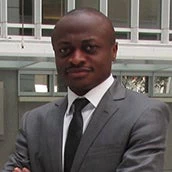 Why the Republic of Congo’s Oil-Driven Growth Model Must Change?
Why the Republic of Congo’s Oil-Driven Growth Model Must Change?
The end of the last commodity supercycle (2002-2014) plunged oil-dependent nations into a prolonged recession, undoing the progress they had made during the boom. The Republic of Congo, Sub-Saharan Africa's third largest oil producer, finds itself at a critical crossroads in its development. Oil-fueled growth propelled Congo to lower-middle-income status in 2005, nearly reaching upper-middle-income status in 2014. However, the oil boom's demise reversed these gains, with Gross National Income per capita plunging by over half between 2014 and 2020, pushing back the country towards low-income status.
Figure1: Gains in income per capita during the last oil boom have been reversed since 2015
Congo GNI per capita (current US$), 1990-2020

Adding to the turmoil, the COVID-19 crisis further exacerbated the economic recession that began in 2015. The Republic of Congo's real Gross Domestic Product (GDP) per capita has now regressed to levels reminiscent of the early 1970s, just a decade after gaining independence. Meanwhile, other commodity exporters such as Angola and Indonesia, which had comparable or lower GDP per capita in the 1990s, have surged ahead with significantly higher GDP per capita.
Figure 2: In the past three decades, Congo’s economy has underperformed relative to its peers
Congo & Peers: GDP per capita, (purchasing power parity constant 2017 international $), 1990 & 2020

The Republic of Congo's protracted recession has triggered a sharp rise in poverty, eroding previous poverty reduction efforts. The percentage of the population living below the international poverty line of US$2.15 a day in 2017 purchasing power parity, which had declined from 49.6 percent in 2005 to 35.4 percent in 2011, is estimated to have reached 52.5 percent in 2022. To ensure sustainable development, the World Bank's recently released Country Economic Memorandum emphasizes the urgent need for the Republic of Congo to diversify its national assets, by strengthening institutions, developing human and physical capital, and pursuing a more balanced exploitation of natural resources.
Amid current global uncertainties, oil price volatility, and the global shift towards a low-carbon economy, the Republic of Congo must depart from its oil-dependent growth model. The imminent depletion of the country's oil reserves adds urgency to the need for a paradigm shift in economic development. However, this transition won't be easy.
Several key factors define the Republic of Congo's challenges:
- Natural capital remains the largest asset and source of wealth, accounting for around 40 percent of Congo's total wealth.
- Weak governance and institutional capacity contribute to inadequate oil revenue collection compared to peer countries, hindering government finances.
- Despite the steady accumulation of physical capital through private and public investment, basic infrastructure coverage remains insufficient.
- Insufficient investment in human capital, with limited expenditures on health and education, leads to lagging human development outcomes and hampers workforce productivity.
- Most critically, the decades-long exploitation of natural resources hasn't been accompanied by the establishment of robust institutions, vital for effectively transforming natural resource revenues into physical and human capital assets.
To accelerate broad-based economic growth, it is also crucial to focus on productivity gains, which rely on a country's competitive environment, digital adoption and skills, access to electricity, and trade openness. To attract investment to the non-oil sector, it is necessary to level the playing field and reduce market distortions. State-owned enterprises (SOEs) in Congo currently hinder the private sector, and the absence of a comprehensive competition legal and regulatory framework exacerbates the issue. Moreover, the lack of reliable electricity, inadequate internet infrastructure, and high service prices impede the adoption of digital technology and the development of digital skills, thereby undermining firms' productivity. Additionally, poor infrastructure, high tariffs, logistics costs, and nontariff measures pose obstacles to trade development. Furthermore, the untapped potential for ecotourism in Congo's natural habitats, including its lush forests housing mountain and lowland gorillas, forest elephants, chimpanzees, and diverse species of birds and fish, is hindered by difficult and expensive access.
Addressing these challenges and unlocking economic growth requires focused policy reforms and investments in several key areas:
- Remove barriers to competition by reducing state-owned enterprises' market dominance, encouraging private sector involvement in electricity and telecommunications, and modernizing competition laws and enforcement capacity.
- Facilitate digital transformation by enabling private sector participation, establishing regulatory and legal support for digital financial services, fostering digital technology adoption, and building digital skills.
- Enhance the supply of reliable electricity by restoring profitability, revitalizing regulation, and investing in transmission and distribution infrastructure.
- Improve trade competitiveness and diversification by reducing tariffs, reviewing non-tariff measures, concluding regional trade negotiations, and strengthening local markets.
- Boost logistics efficiency by scrutinizing public-private partnership contracts and implementing unified information technology systems for maritime trade.
- Develop ecotourism potential through improved access to Congo's natural habitats, protect and sustainably manage the lush forests and diverse wildlife, allocate funding for conservation efforts, and enhance transport infrastructure and marketing to unlock the potential of ecotourism





Join the Conversation